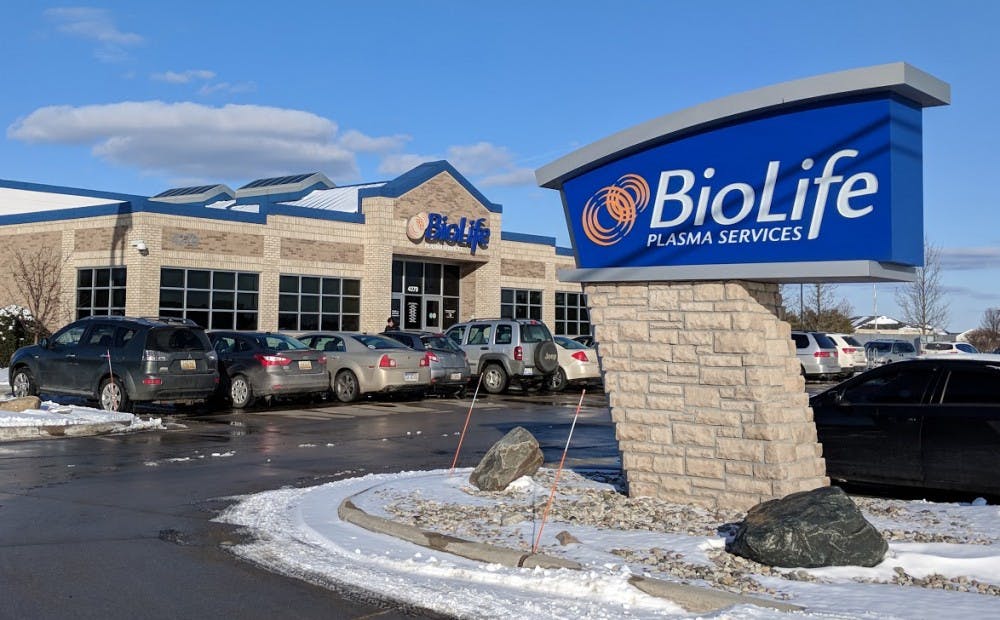Students helping themselves, others by donating plasma during pandemic
Many Central Michigan University students have turned to BioLife Plasma Services as a method of charity and profit during the COVID-19 pandemic.
According to the American Red Cross, plasma donations are typically used to treat individuals suffering from severe trauma, burns or shock, cancer, or an immunodeficiency disorder.
Plasma donations are used in transfusions to support blood clotting, prevent excessive bleeding, and fight off infection.
Due to COVID-19, plasma donations have become imperative for high-risk individuals. They’ve also played a vital role in discovering a treatment for patients with the virus.
Alicia Highlander of BioLife Communications highlighted the importance of donations during the pandemic.
"With plasma donations lower than usual through the pandemic and demand for therapies developed from plasma growing worldwide – the need for human plasma is more urgent than ever," Highlander wrote in an email. "On average, hundreds to more than a thousand donations are needed to provide therapy for one patient over the course of one year."
CMU students have stepped forward to fulfill the demand for donations. Cadillac freshman Tipp Baker has been donating since he had the virus early in the Fall 2020 semester.
He said he started donating due to the usefulness of his COVID-19 antibodies. Many months later, however, he still goes in twice a week.
“I donate because I’m lucky enough to be healthy and able to do so," Baker said. "I have the ability to do something simple that can save a life without harming myself, so why wouldn’t I donate.”
Forest Hills freshman Ella Guikema has also been consistently donating since last semester.
“After donating I definitely feel happy that I took the hour to do something positive and productive. The experience is rewarding for you and the people you're helping,” Guikema said.
Guikema said donors will not only be helping others, but also earning money that can be used for tuition costs, dorm/apartment payments, grocery bills, and meal plans.
"I've put most of my money towards my dorm costs and meal plan, and I expect I'll need the money for next year's dorm payments too. Any money leftover I usually put into my savings for future apartment costs."
Students can earn at least $200 a month by donating twice a week and can earn even more with positive COVID-19 antibodies. During the pandemic, this money can be especially helpful to keep struggling students afloat financially.
"Donating plasma is a voluntary action and in line with industry practice, BioLife compensates individuals who donate plasma in recognition of the time, commitment and effort required," Highlander said. "To learn more about current promotions and payment plans, please give us a call."
Students interested in donating plasma, whether for charity or financial compensation, can sign up on BioLife's website, or on the BioLife App. Donors must be 18 years or older, weigh at least 110 pounds and pass all other required donor eligibility criteria.








